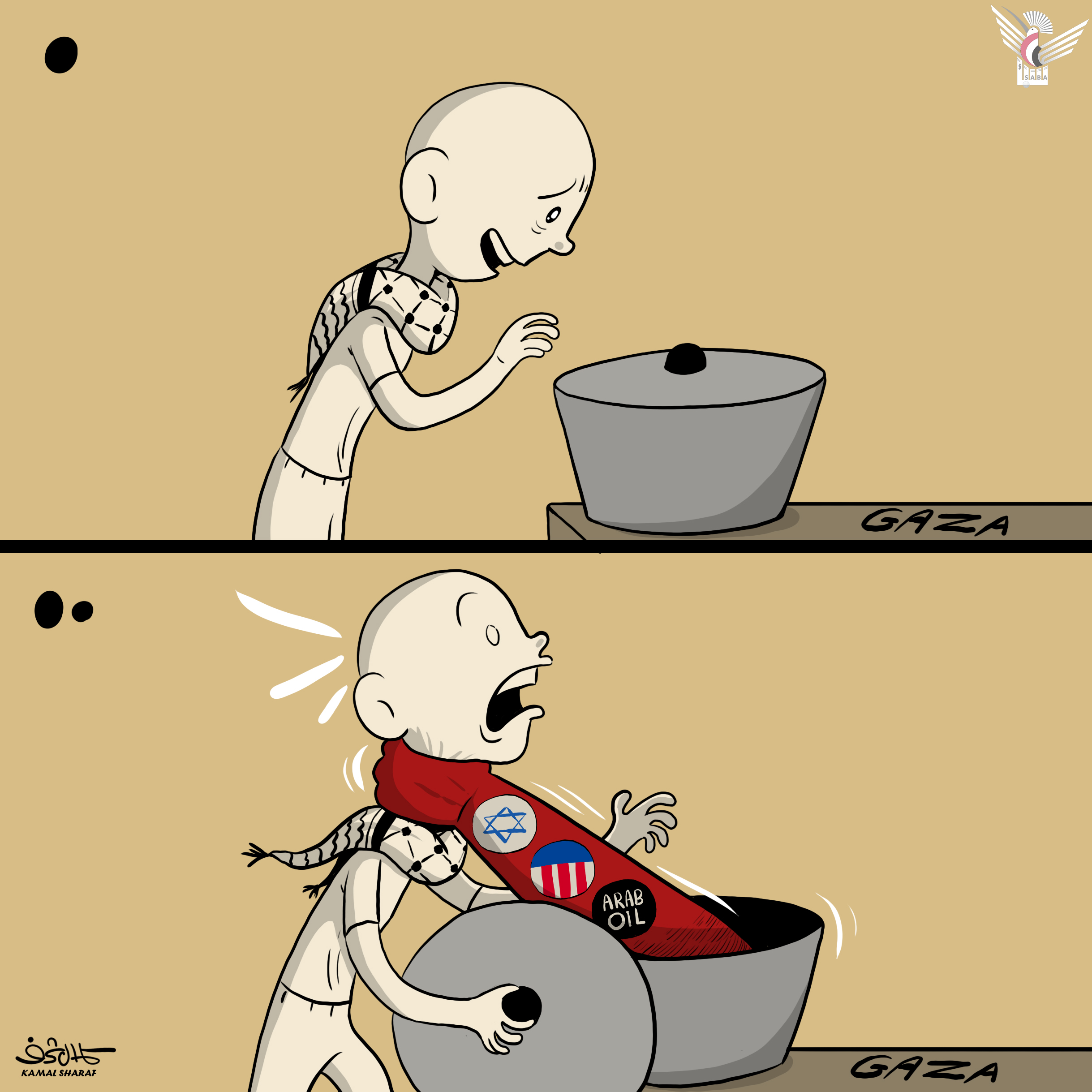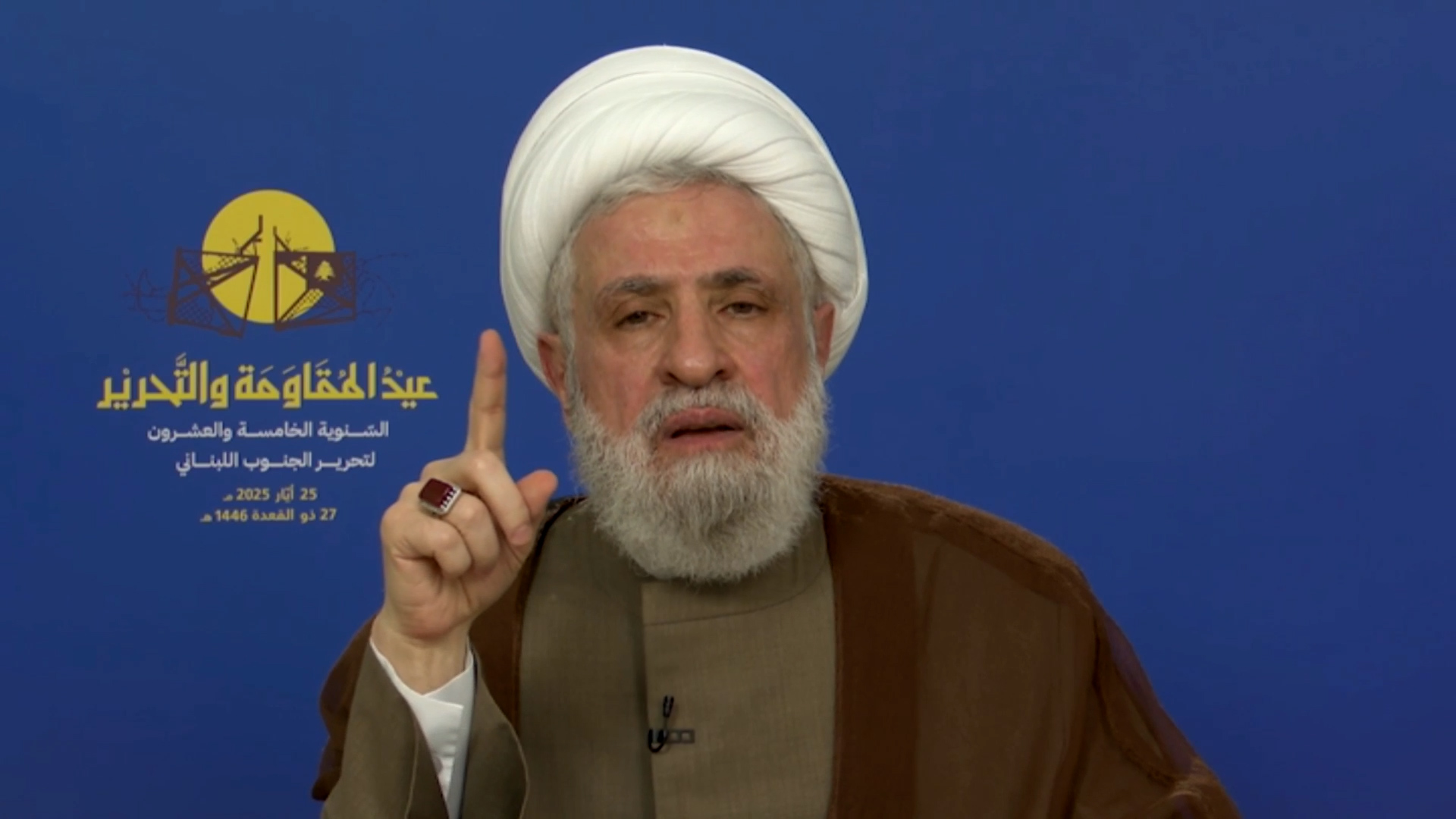Beirut – Saba:
Hezbollah’s Secretary-General, Sheikh Naim Qassem, affirmed that the ongoing Israeli aggression does not weaken the resistance but rather strengthens its resolve and determination.
He emphasized the party’s adherence to the triad of the army, the people, and the resistance as the foundation for shaping the future and achieving liberation.
In a speech marking the 25th anniversary of Resistance and Liberation Day, Sheikh Qassem praised the resilience demonstrated by Yemen in the face of American-Israeli aggression. He also highlighted the steadfastness of the people of Gaza, who have confronted genocide and destruction backed by the United States.
He stated that the resistance emerged out of necessity in confronting the enemy, stressing that Lebanon cannot remain passive against such threats. The resistance, he said, is the natural solution when the army is unable to act and serves as its support when it is capable.
Sheikh Qassem explained that the resistance has transformed Lebanon from weakness to strength, proving to be the only viable path to liberation. He noted that Israel’s ability to expand its influence in Lebanon has ended.
He described Resistance and Liberation Day as the cornerstone that paved the way for subsequent achievements, recounting heroic stories from members of the resistance community.
Sheikh Qassem pointed out that the Israeli occupation of Palestine and repeated aggressions against Lebanon and regional countries were the direct causes of the resistance’s emergence in Lebanon.
He reviewed the stages of the resistance since the 1970s, highlighting Hezbollah’s formation in the 1980s and its pivotal role in the resistance movement.
The Hezbollah leader underscored that the Israeli occupation failed to establish a lasting presence in Lebanon. He recalled that the political rivalry in Israel ahead of the 2000 elections between Ehud Barak and Benjamin Netanyahu revolved around the withdrawal from southern Lebanon.
Sheikh Qassem described this victory as a monumental achievement for the resistance and the Lebanese people, emphasizing that Israel’s withdrawal was unconditional and without any agreement. He dismissed Israeli predictions that the withdrawal would trigger internal strife or sectarian discord.
He affirmed that this historic achievement altered the region’s political, cultural, and jihadist trajectory, transforming Lebanon from despair to hope, submission to resistance, humiliation to dignity, and defeat to victory.
Sheikh Qassem reiterated that the resistance continues today as it did in the past, representing the choice of the people and believers. He emphasized that resistance is a steadfast option, embodied by the will of the people, and cannot be defeated—remaining resilient through sacrifice, dignity, martyrs, prisoners, the unwavering faith of families and children eager to defend their homeland.
He stressed that the resistance is inherently defensive, symbolizing a rejection of occupation and refusal to surrender.
Addressing the current situation, Sheikh Qassem noted that the Lebanese state had indirectly agreed to a ceasefire with Israel and adhered to it, as did Hezbollah—despite over 3,300 Israeli violations, which constitute ongoing aggression.
He demanded that Israel withdraw, cease hostilities, release prisoners, and end all obligations under the agreement before any new negotiations could begin.
Sheikh Qassem held the United States responsible for the continuation of aggression, warning that the state’s failure to counter it might force the resistance to consider other options.
He cautioned against persistent U.S. pressure on Lebanese officials to meet Israeli demands, asserting that Lebanon faces only two choices: victory or martyrdom, with no room for surrender.
The Hezbollah leader emphasized that reconstruction is the cornerstone of Lebanon’s stability, urging the government to expedite the launch of a reconstruction fund.
Sheikh Qassem affirmed that Hezbollah is integral to all positive developments in Lebanon, including presidential elections, government formation, municipal elections, and appointments. He called for thwarting any attempts at obstruction, stressing that a strong and stable Lebanon serves the interests of all its people and regional and international allies, and that no one can blackmail Lebanon over its national decisions.
He urged boldness and trust in Lebanon, its people, army, and resistance, asserting that no one can defeat them and that anticipated achievements will be realized.
Sheikh Qassem concluded by affirming that Hezbollah and the Amal Movement serve as a social safeguard and a pillar of national balance, with an unwavering commitment to prioritizing this role.

| more of (International) |




